Are you looking to improve your approach to medical peer consultations? Crafting a clear and professional letter can be a game changer in establishing effective communication with your colleagues. Whether you're seeking input on a complex case or sharing insights from your practice, a well-structured letter can make all the difference. Join us as we explore helpful templates and tips to enhance your medical dialoguesâread on to discover more!

Patient Information and Case Summary
Patient information is critical in a medical peer consultation. Patient ID numbers facilitate accurate tracking within healthcare systems. Case summaries should include relevant demographics, such as age (e.g., 45 years), gender (e.g., male), and medical history, including previous diagnoses like hypertension and diabetes mellitus. Details regarding presenting symptoms (e.g., persistent chest pain for three days), along with vital signs (e.g., blood pressure 140/90 mmHg), are also essential. Diagnostic tests should be documented, such as ECG results indicating possible ischemia and blood tests showing elevated troponin levels. Information about the treatment plan, including prescribed medications like aspirin and beta-blockers, as well as any referrals for specialists, adds context to the case. Overall, comprehensive patient information enhances collaborative efforts among healthcare providers in achieving optimal patient outcomes.
Pertinent Medical History and Previous Treatments
A comprehensive review of a patient's pertinent medical history reveals multiple chronic conditions, including hypertension (average blood pressure readings of 150/95 mmHg) and type 2 diabetes mellitus (HbA1c levels consistently over 8%). Previous treatments administered include a regimen of metformin (1000 mg twice daily) for diabetes management and lisinopril (20 mg daily) for blood pressure control. Additionally, the patient has undergone lifestyle modifications, such as a structured diet and a walking program (30 minutes daily), with limited success in weight loss (only 5 kg reduction over six months). Past surgical interventions included a laparoscopic cholecystectomy performed in 2020. Family history is remarkable for cardiovascular disease, with the patient's father suffering a myocardial infarction at age 62.
Specific Questions or Opinions Sought
In medical peer consultations, clarity in specific questions can significantly enhance the quality of collaboration among healthcare professionals. When presenting a case study involving a 45-year-old female patient diagnosed with chronic migraine (recurrent headaches affecting daily life), inquiries might focus on treatment efficacy and patient management strategies. For instance, the primary question could involve the effectiveness of botulinum toxin injections, typically administered every 12 weeks. Additionally, it may be pertinent to ask for opinions on lifestyle interventions, including dietary modifications, sleep hygiene, and stress management techniques. Another relevant aspect could involve the assessment of possible drug interactions with the patient's current medication regimen, specifically considering the use of triptans and other migraine prophylactics. Overall, fostering detailed responses can lead to evidence-based improvements in patient care and clinical outcomes.
Relevant Diagnostic Test Results
Diagnostic test results play a crucial role in clinical decision-making, providing essential insights into patient health conditions. Common tests such as Complete Blood Count (CBC) measure various blood components and can indicate infections, anemia, or blood disorders. Imaging studies, including X-rays, CT scans, or MRIs, are vital in detecting structural abnormalities or injuries, particularly in orthopedic cases or cancer diagnosis. Specific tests like Electrocardiograms (ECGs) allow for monitoring heart health, identifying arrhythmias or other cardiac issues. Understanding these results requires integration of reference ranges, lab standardization, and patient medical history to tailor personalized treatment approaches in medical practice.
Contact Information for Follow-up
For effective medical peer consultation, clear communication and prompt follow-up are essential. Accurate contact information facilitates ongoing dialogue and case collaboration. Include details such as the healthcare provider's full name, their specialty, and any relevant credentials (e.g., MD, DO, etc.). The primary practice address, including specific city and state, is crucial. Additionally, provide direct phone numbers (such as office and mobile lines), professional email addresses for secure communication, and availability hours for consultations. Including a contact person's name for administrative assistance can streamline the process. Lastly, relevant institutional affiliations (such as hospitals or clinics) enhance accountability and professional network engagement.

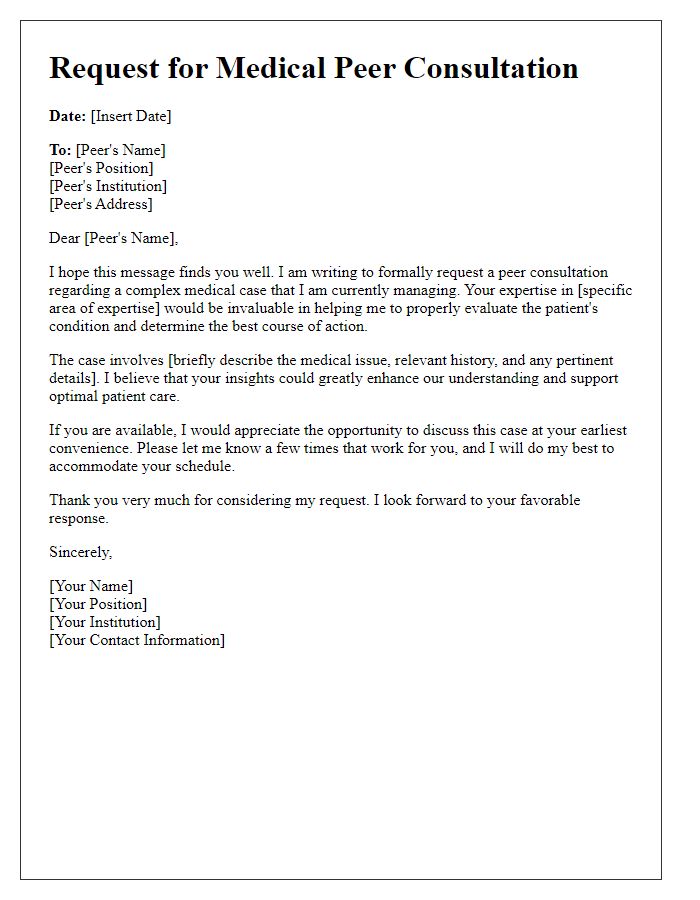
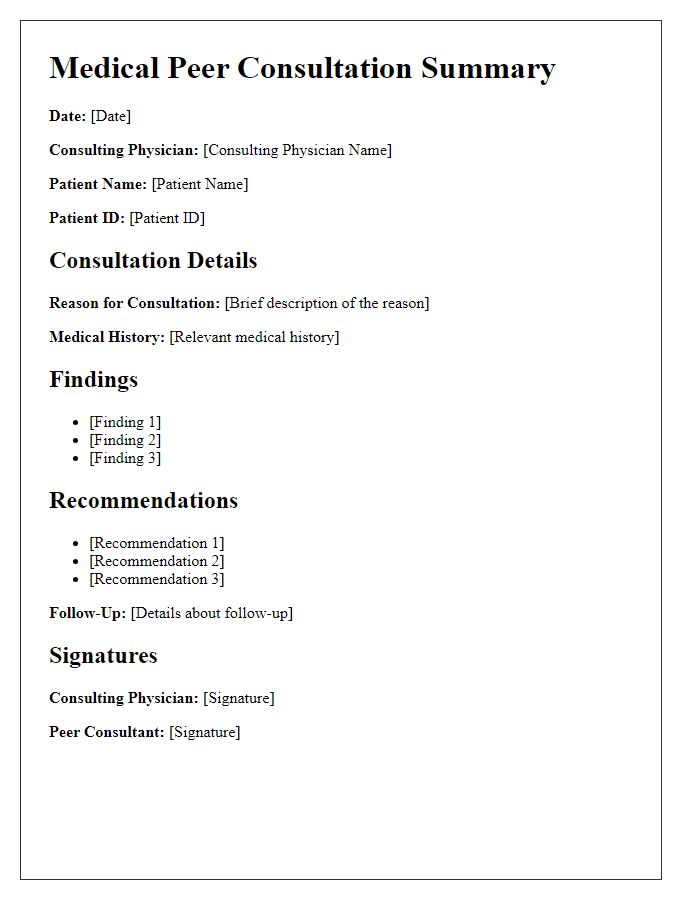
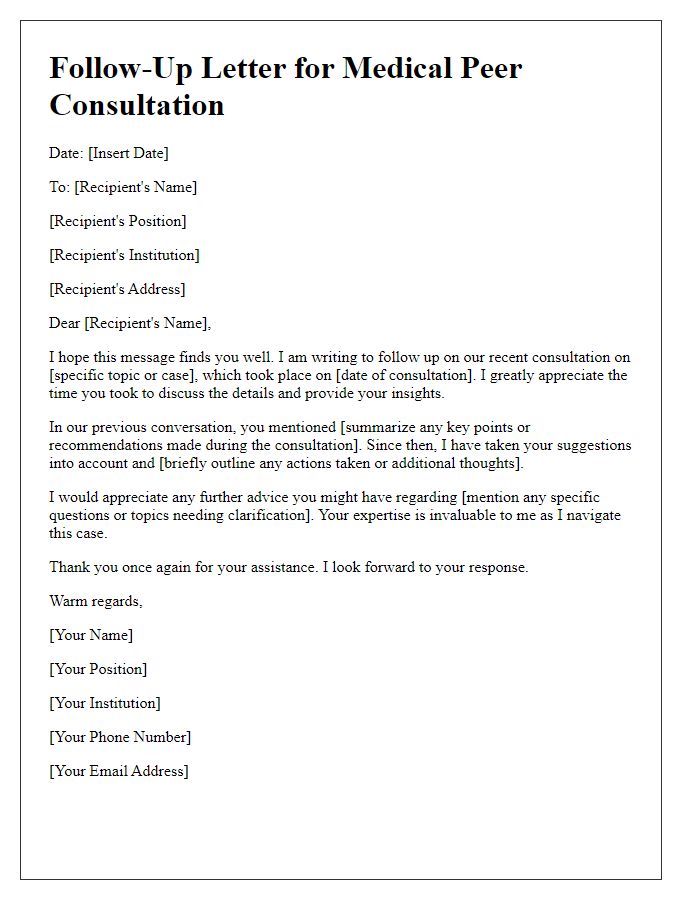
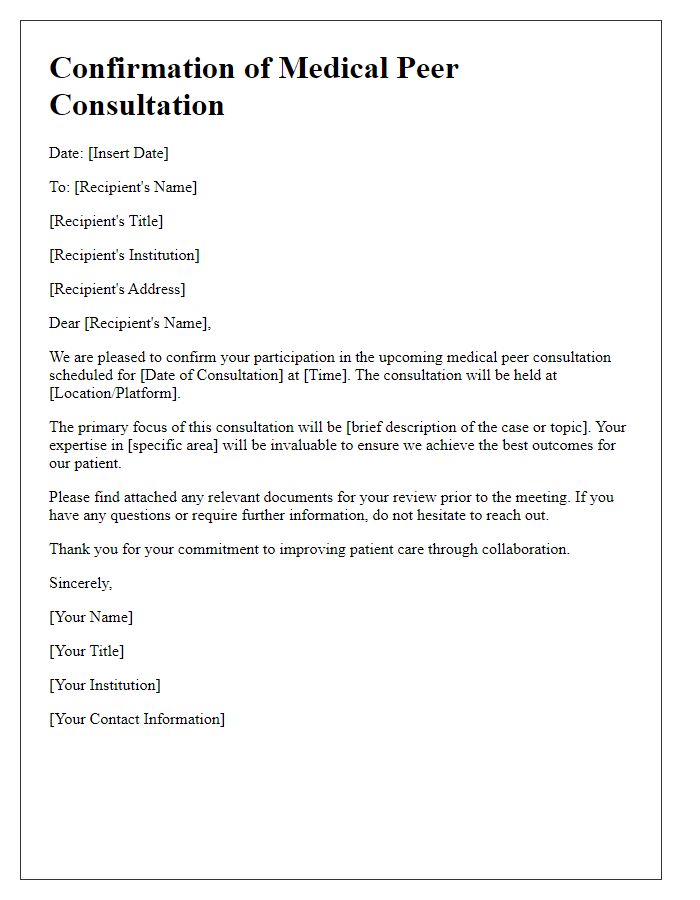
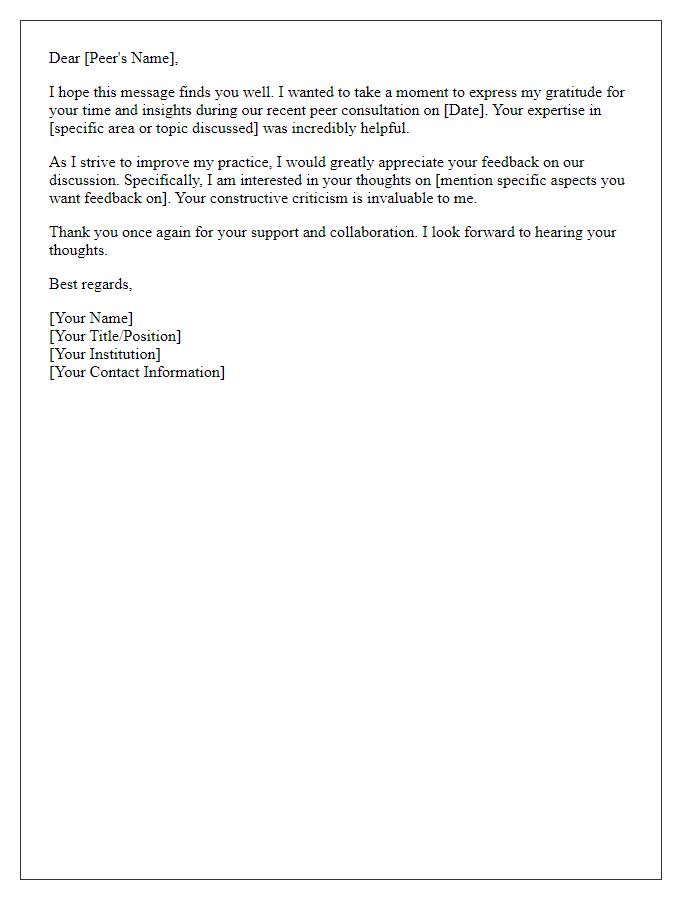
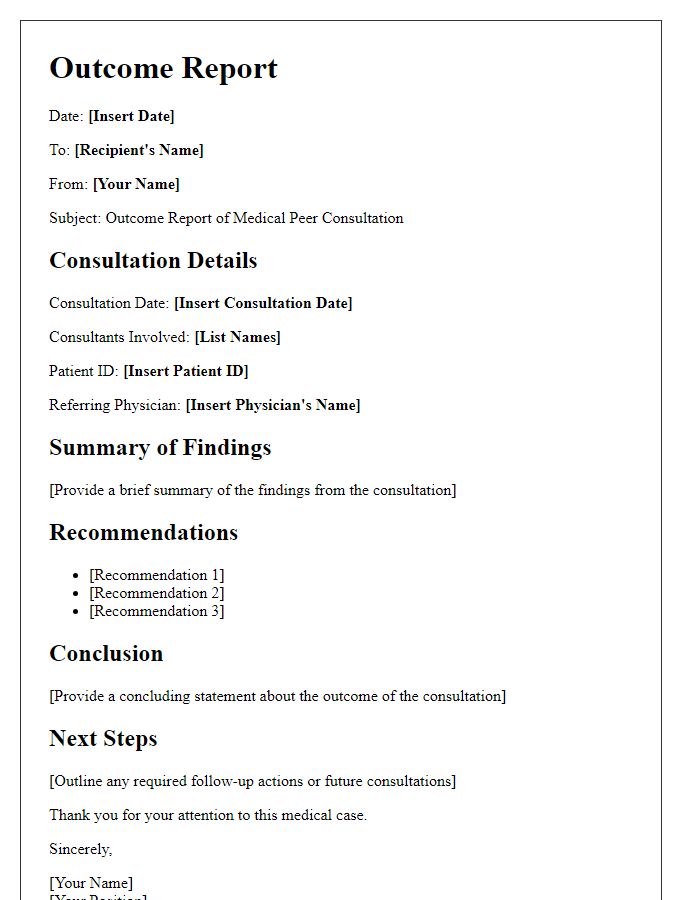
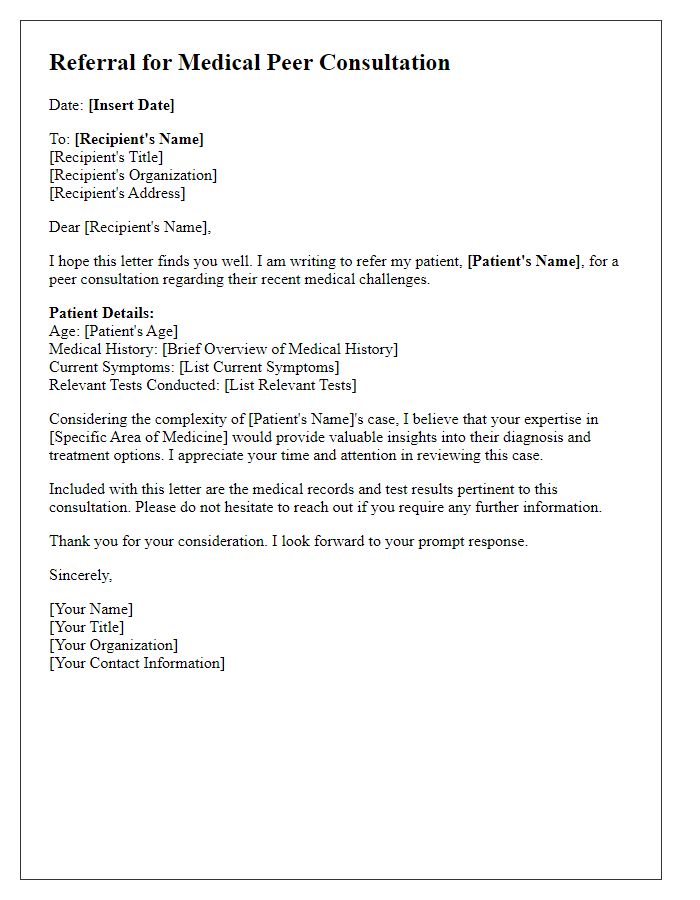
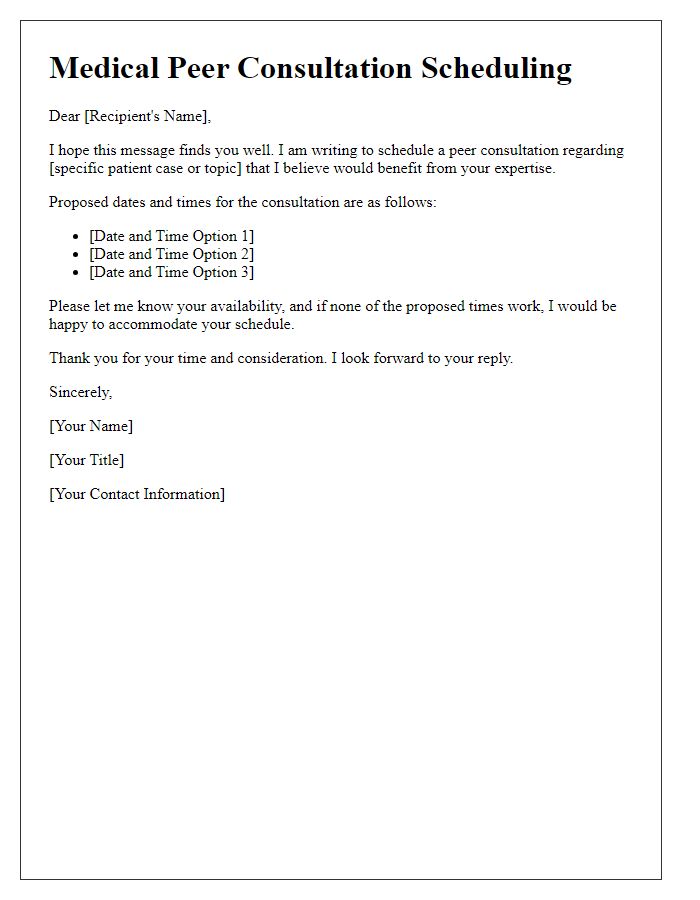
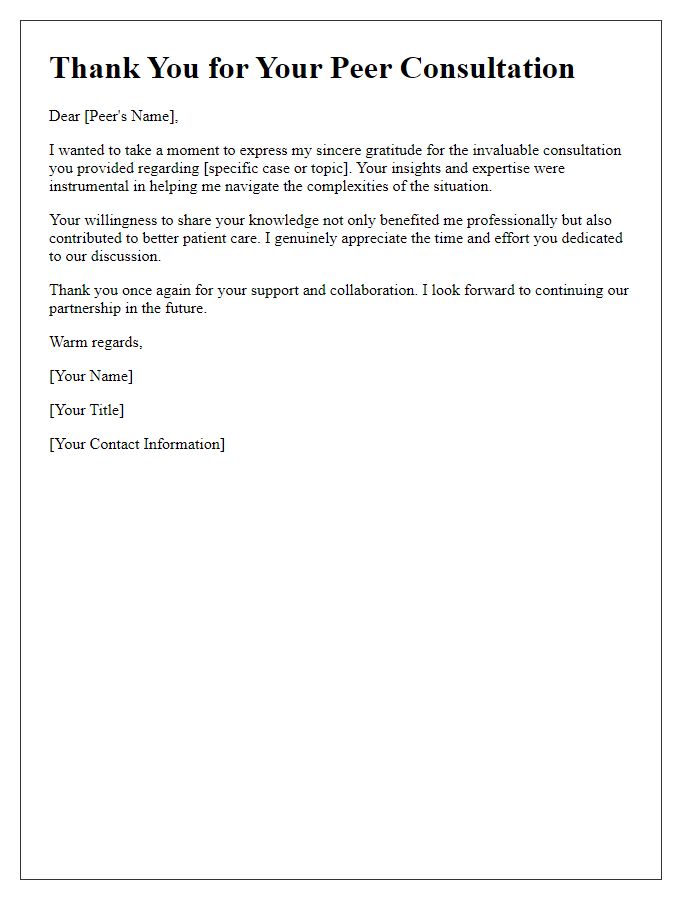
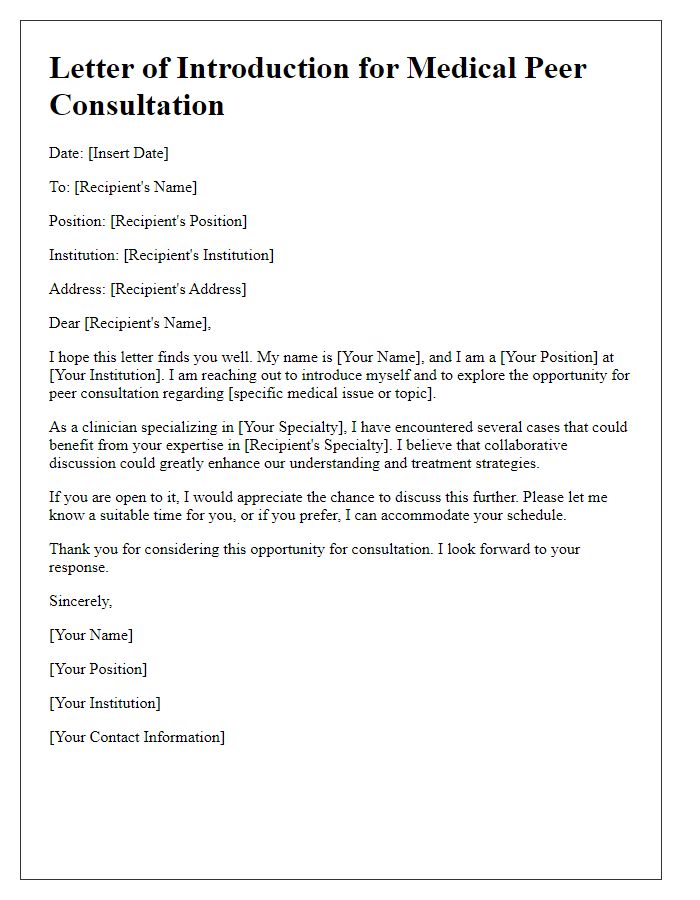


Comments